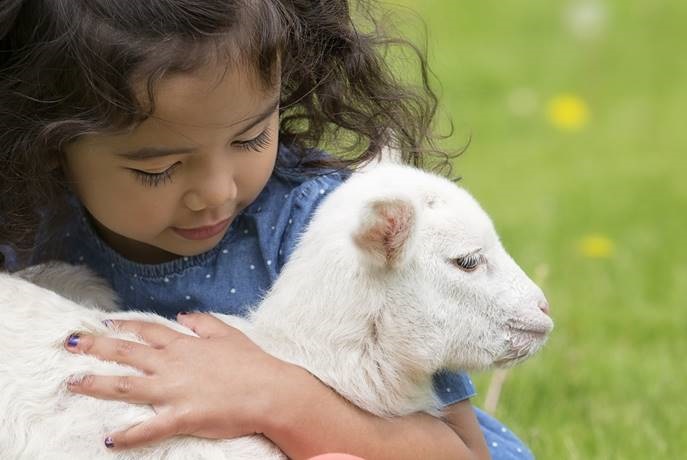
Science has found an ally in the fight against brain diseases: sheep.
"We have deliberately re-created the condition in a large mammal because sheep have a brain of a similar size and complexity to that of a child," Tom Wishart, project leader at Scotland's Edinburgh University Roslin Institute, told The Guardian recently. He explained how this means treatments tested on them are more likely to be relevant to humans than those tested only on cell cultures or mice and rats.
The plan, in simple terms, is to breed sheep that have two faulty copies of the gene responsible for Batten disease, a lethal childhood disease, and so will develop a disease that manifests in the same way as it does in afflicted children. These sheep will be used to test therapies and cures.
"It is a terrible necessity," Wishart said, "to reproduce such a condition. However, we are talking about using maybe only 10 or so animals for this research with the ultimate aim of finding treatments that could add years to the lives of young patients."
He explained that unlike humans, these sheep can be tested before their outward symptoms develop and gaining new understandings of how the disease unfolds will be invaluable.
What is Batten Disease?
According to the US-based National Institute of Neurological Disorders and Stroke (NINDS), common symptoms include vision loss, seizures, delay and eventual loss of skills previously acquired, dementia, and abnormal movements.
"As the disease progresses, children may develop one or more symptoms including personality and behaviour changes, clumsiness, learning difficulties, poor concentration, confusion, anxiety, difficulty sleeping, involuntary movements, and slow movement," the website reads.
Over time, "affected children may suffer from worsening seizures and progressive loss of language, speech, intellectual abilities (dementia), and motor skills." They become blind, wheelchair bound, bedridden, unable to communicate, and lose all cognitive functions.
There is no cure, and children with all forms of Batten disease have a greatly shortened life expectancy.
Sheep also battle Huntington's Disease
This study isn't the first to use sheep as test studies, and researchers at the University of Auckland have been using sheep to test cures for Huntington's disease for a several years now.
Huntington's disease is an inherited disorder that causes brain cells, called neurons, to die in various areas of the brain, including those that help to control voluntary (intentional) movement.
Symptoms of the disease, says NINDS, get progressively worse, and in cases of juvenile Huntington's disease - which occurs in youth under age 20 - symptoms include "rigidity, slowness, difficulty at school, rapid involuntary muscle jerks called myoclonus, and seizures."
The mutation was isolated more than 20 years ago, explains a 2014 study at the University of Auckland, but "the molecular mechanisms underlying pathogenesis in HD remain poorly understood" and "there is no effective treatment that can prevent or delay its onset or progression".
The study stresses that the ability to investigate Huntington's disease "in large animals which accurately recapitulate the genetic basis of Huntington's disease" may provide "unique opportunities for the development of disease-modifying therapies and their progress to the clinic."
Chat back:
Share your story with us, and we could publish your mail. Anonymous contributions are welcome.
Compiled for Parent24 by Elizabeth Mamacos
Read more:
WATCH: How one school’s colourful sensory hallway helps kids to be calm and centered in class
Dyslexia affects up to 5 kids per class, yet most teachers don’t understand it well




 Publications
Publications
 Partners
Partners















